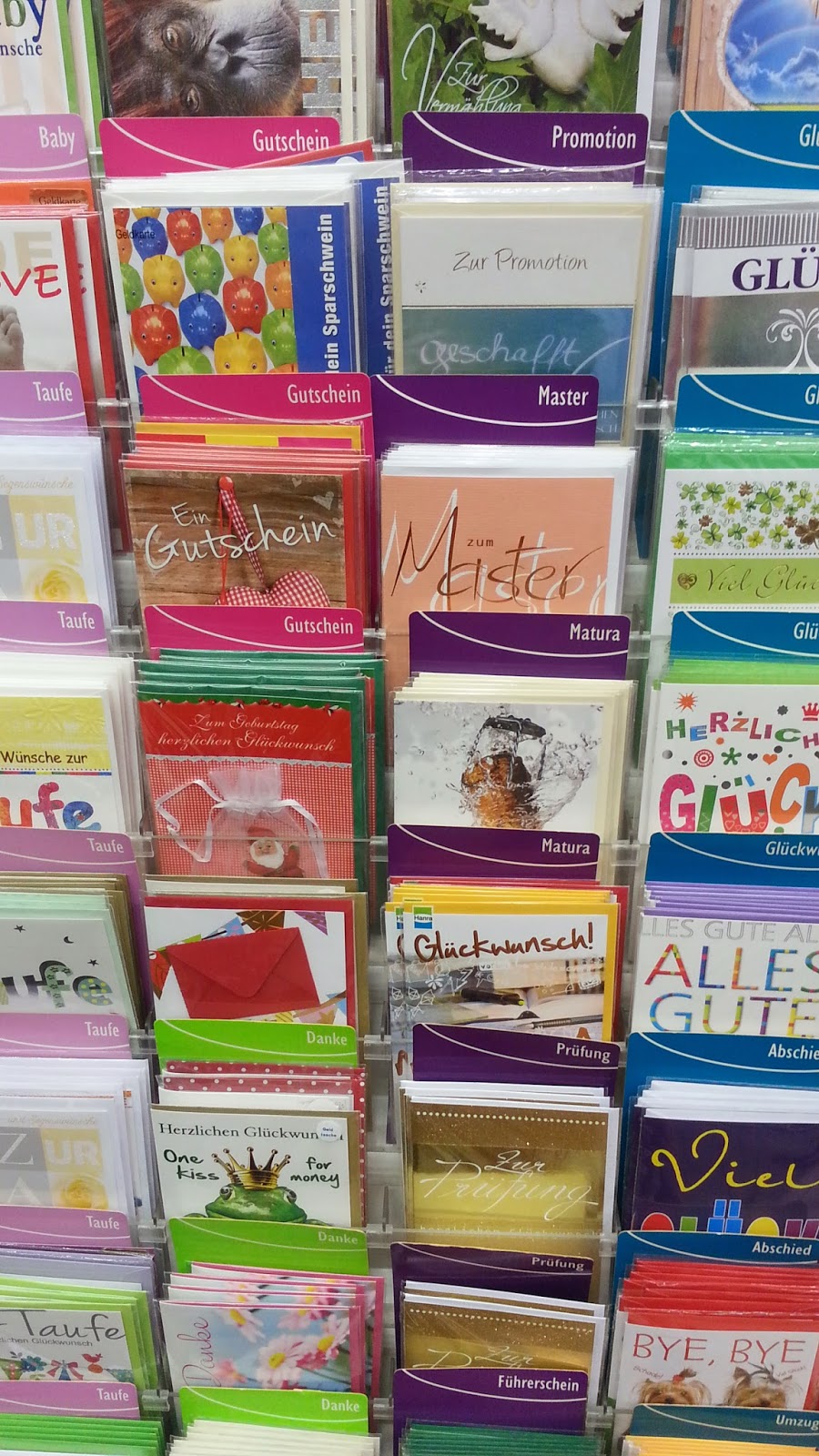One of those values is respect and status. In Austria, respecting your elders and those "above you" is highly valued. The most obvious way this is demonstrated is through the language. When you are speaking to someone and you want to show respect, you use the formal "you", rather than the informal. (I wrote more about this here.) But the importance of status comes out in many other ways in the culture. For example, if you have earned a university degree or certificate of any kind, you often communicate this after your name in emails you write, documents you sign, etc. It demonstrates to others the status you have and the respect you should receive. In the U.S., there are many people who have masters degrees but never put "MA" after their name. However, here, this would be common and accepted.
Another place I noticed this cultural difference recently was, of all places, at the card store. Closely connected to this concept of status is achievement. When someone achieves a new level of status, this is celebrated and highly respected. I was walking past the greeting cards the other day and happened to look through the different categories of cards available to purchase. They were definitely different than what I have seen in the U.S. and reflect this cultural difference. The cards you could purchase related to status and achievement (pictured to the left in purple) included:
- Master's degree
- Promotion at work
- Passing an exam
- Getting your driver's license
- Passing your final high school comprehensive exams
Noticing this difference encourages me to keep my eyes and ears open. Subtle cultural difference can sometimes be difficult to spot. But if we are aware and observant, we can notice how cultural values impact nearly every aspect of daily life in a foreign culture. It's these little things that we will slowly come to understand and internalize as we acclimate to the culture here.


